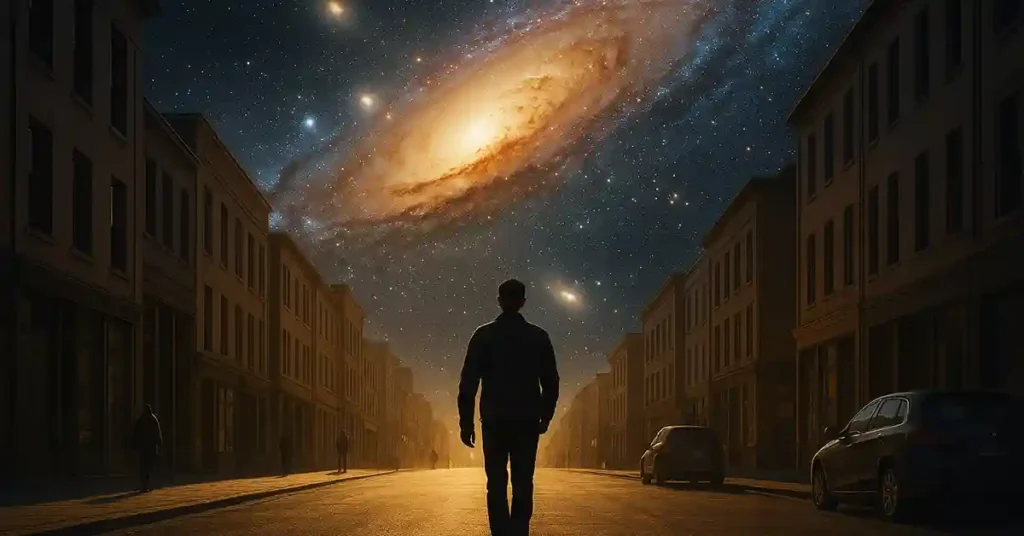Imagine you’re walking to a bookstore. Someone walks by you in the opposite direction. You smile politely, nod, and keep going. Harmless, right?
But according to one of the weirdest paradoxes in theoretical physics, your short stroll just altered the course of an alien invasion in a galaxy 2.5 million light-years away.
Welcome to the Andromeda Paradox.
What Is the Andromeda Paradox?
Coined by physicists Roger Penrose and David Deutsch, the Andromeda Paradox is a thought experiment that challenges our understanding of simultaneity in relativity theory. In essence, it suggests that tiny differences in how we move—like walking toward or away from someone—could shift what counts as “now” for events happening in a distant galaxy.
Let’s break it down.
According to Einstein’s special relativity, there’s no single, universal “now.” What is simultaneous for one observer may not be for another if they’re in motion relative to each other. This isn’t just a philosophical headache—it’s a measurable effect.
Walking and War: A Dramatic Example
Here’s the setup:
Two people—let’s say Alice and Bob—walk past each other on Earth. Alice is walking toward the Andromeda Galaxy; Bob is walking away from it.
According to relativity, their respective definitions of “now” for events in Andromeda differ by several days—just because of the direction and speed of their movement.
So in Alice’s present, a decision might have already been made by an alien civilization in Andromeda to invade Earth.
But in Bob’s present, that decision hasn’t been made yet. The same moment in time for them on Earth corresponds to different futures in the Andromeda galaxy.
All of this, from just walking in opposite directions.
But… How Can That Be?
The key lies in how relativity defines simultaneity. The faster or differently you move, the more your “plane of simultaneity” (essentially your personal slice of what counts as “now”) tilts relative to others.
At short distances, the effect is microscopic. At galactic scales, even minor motion can cause wildly different interpretations of what’s happening “now” elsewhere.
The paradox doesn’t imply that Alice and Bob could affect the future in Andromeda—it simply means their present moments correspond to different slices of time there.
Philosophical Implications: Is the Future Fixed?
The Andromeda Paradox brushes up against the block universe theory—where past, present, and future all exist simultaneously in a four-dimensional spacetime “block.” If Alice and Bob’s “now” already contains different events in Andromeda, then the future is already written—it just depends on how you slice it.
That’s where this paradox gets personal.
Are you just walking down the street, or are you reshaping the future of a distant galaxy without even knowing it?

How This Inspires The Silent Guardian
In The Silent Guardian, the philosophical weight of time travel is just as important as its action. The protagonist, Adam, frequently struggles with the consequences of moving through time—not just on himself, but on the unseen future he may be rewriting.
The Andromeda Paradox feels like something the Phylax would contemplate during silent rituals, doesn’t it? What if every decision you make—every footstep—collapses the wave function of someone else’s destiny, millions of years away?
Final Thoughts
The Andromeda Paradox isn’t about aliens, per se. It’s about perspective. It reminds us that time is not absolute, the future may already be happening, and the cosmos is far stranger than we imagine.
So the next time you cross paths with a stranger, pause. You might be sharing a moment that doesn’t exist for them at all.
